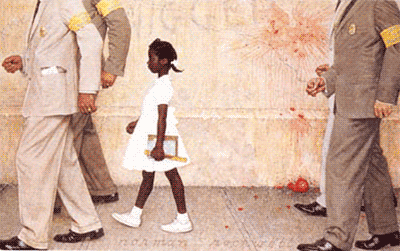In Aria Richard Rodriguez tells us that if he had been educated in a bilingual environment he would have delayed “having to learn the language of public society.” This would likely have delayed the development of his public identity. He sees proponents of bilingual education as scornful of “the value and necessity of assimilation” into public society by learning English and unaware that there are “two ways a person is individualized.”
As a practitioner and student in the field of teaching English as a second language I have come to appreciate that bilingual education has a role in the classroom. Experts in second language acquisition, including RIC’s own Dr. Nancy Cloud, have advocated for bilingual English/Spanish kindergarten in Central Falls and in similar locales. Research has shown that for pre-literate learners making sense of their native language helps to anchor overall literacy development which also helps them learn English. This seems to contradict the author’s experiences.
Therefore, I ask the following questions:
· What do Rodriguez’s experiences say about providing bilingual education in public schools?
· Is there a place for limited bilingual education, perhaps at certain skill levels for newcomers or pre-K and kindergarteners?
Also, although Rodriguez admits that English language learners suffer a “diminished sense of private individuality by becoming assimilated into public society, such assimilation makes possible the achievement of public individuality.” The author told us that his English came at a cost and that cost at least in part was a diminished closeness in his family. That leads me to ask:
· Can children learn classroom English without losing the closeness of family?
· Is the child’s assimilation worth the silence at home?
· Should family cohesiveness, closeness and communication be a concern for educators?
Finally, Richard Rodriguez is one person with one opinion based on his unique life experiences. Yet that opinion and those experiences resonate with our prior reading about the realities of the US educational system. Rodriguez reminds me that English is the language of inclusion, assimilation and opportunity. It is the public language and the language of the classroom. He reminds me that a strictly bilingual education may limit a child’s assimilation which will likely limit his life choices. Therefore, he forces me to look at the topic of bilingual education in a new light.
· What do Rodriguez’s experiences say about providing bilingual education in public schools?
· Is there a place for limited bilingual education, perhaps at certain skill levels for newcomers or pre-K and kindergarteners?
Also, although Rodriguez admits that English language learners suffer a “diminished sense of private individuality by becoming assimilated into public society, such assimilation makes possible the achievement of public individuality.” The author told us that his English came at a cost and that cost at least in part was a diminished closeness in his family. That leads me to ask:
· Can children learn classroom English without losing the closeness of family?
· Is the child’s assimilation worth the silence at home?
· Should family cohesiveness, closeness and communication be a concern for educators?
Finally, Richard Rodriguez is one person with one opinion based on his unique life experiences. Yet that opinion and those experiences resonate with our prior reading about the realities of the US educational system. Rodriguez reminds me that English is the language of inclusion, assimilation and opportunity. It is the public language and the language of the classroom. He reminds me that a strictly bilingual education may limit a child’s assimilation which will likely limit his life choices. Therefore, he forces me to look at the topic of bilingual education in a new light.

Donna, I really enjoyed reading this post. Would you mind if I quoted you in one of my synopses? I just don't think I could put into more clearer words what you said. Your thoughts are so developed and compelling.
ReplyDelete